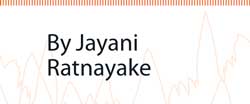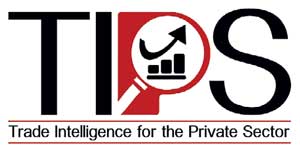06 Oct 2016 - {{hitsCtrl.values.hits}}

 Services cover every aspect of human activity today and is considered the most dynamic component of the global trading economy.
Services cover every aspect of human activity today and is considered the most dynamic component of the global trading economy.
The contribution of the services sector to Gross Domestic Product (GDP) has been rapidly growing both in the developed and developing parts of the world. World Bank statistics show that the services sector accounted for 68.5 percent of the global GDP in 2014.
Their inclusion in the Uruguay Round of trade negotiations led to the signing of the General Agreement on Trade in Services (GATS) in 1994 by all members to the World Trade Organisation (WTO). GATS is considered the first attempt to globalize trade in services. Since GATS, trade in services has become an important component of
trade agreements.

Growing appetite for trade agreements outside WTO
Not much has been happening in the WTO multilateral trading system in terms of rules and market accessin trade. With the de facto failure of Doha Round of WTO trade liberalization negotiations, many countries have either already signed or are negotiating free trade agreements outside the WTO. Given the complexity and the sensitivity of trade in services, decision-making based on consensus has become an extremely difficult andtime-consuming exercise within the WTO multilateral framework. As the services sector has become a key growth driver in many developed and emerging economies, many of them have started short-circuiting the WTO to work out better trade in services deals within like-minded nations.
What is Trade in Services Agreement?
The Trade in Services Agreement (TiSA) is a trade agreement being negotiated (outside the WTO) since 2013 among 23 members of the WTO. The current negotiating party of 23 comprise ofAustralia, Canada, Chile, Colombia, Costa Rica, The European Union, Hong Kong, China, Iceland, Israel, Japan, Liechtenstein, Mauritius,Mexico, New Zealand, Norway, Pakistan, Panama, Peru, The Republic of Korea, Switzerland, Chinese Taipei, Turkeyand the United States.
According to the European Commission, current participants of TiSA negotiations account for 70 percent of world trade in servicesand is the largest multilateral trade agreement currently under negotiation outside the WTO. By June 2016, 18 rounds of negotiations have been completed and currently there is no formal deadline set for concluding negotiations.
TiSA is open for other WTO Members to join during the negotiations or after the Agreement is signed.Interestingly, the composition of TiSA participants include not only high income economies, but also upper middle income and lower middle income economies. It is also representative of 12 of the G20 nations. Yet,none of the BRICS nations (Brazil, Russia, India, China and South Africa)are part of theTiSA negotiations.
TiSA as forerunner
The architecture of TiSA is based on GATS and all negotiated provisions such as definitions, scope, market access and national treatment obligations, exceptions are compatible with GATS.
The talks and decision-making are consensus-based and it is open to all WTO members interested in liberalisation of trade in services.According to the countries taking part in TiSA negotiations, they believe this will strengthens the multilateral trading system envisioned by the WTO and act as a forerunner of the multilateral trade regime on servicesthat later can expand its wings to become a broader WTO agreementonce enough WTO members join in.Further, China’s decision to be part of TiSA and participation of low middle income countries such as Pakistan has brought in complexity and new dimensions to the negotiations, making TiSA somewhat more representative of countries taking part in global trade. Many believe that TiSA could provide a much-needed ‘boost’ to stalled multilateral negotiations on Trade in Services.
Lessons for Sri Lanka
Sri Lanka has largely remained a spectator in the global trade game, as a result of not being dynamic in the changing global trade landscape. Given the rate at which trade relationships are formingand how less economically-powerful nations are engaging in these,Sri Lanka can no longer be a spectator, andneeds to be an active player bypursuing strategiesto promotetrade in services within a rules-based regime.
(Jayani Ratnayake is an Economist in the Economic Intelligence Unit. This article is part of the ‘Trade Intelligence for the Private Sector’ (TIPS) initiative of the Ceylon Chamber of Commerce, aimed at enhancing awareness on trade policy issues among the Sri Lankan
private sector)
10 Jan 2025 1 hours ago
10 Jan 2025 2 hours ago
10 Jan 2025 2 hours ago
10 Jan 2025 3 hours ago
10 Jan 2025 3 hours ago